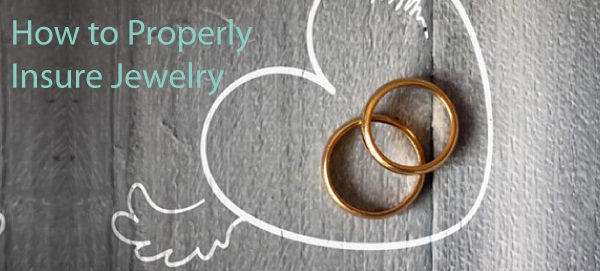Insuring Jewelry
Knowing how much personal property coverage you have on your homeowners or renters policy is a good place to start with insuring jewelry. Most of the time, you’ll be covered up to a certain limit if it is stolen ($2,500 total). But with the average value of an engagement ring in the US costing around $5,000, homeowners insurance policies will most likely not cover the full value.
Since your standard policy most likely only covers part of your jewelry’s cost (and there’s usually no coverage for items that are lost or damaged), you may have to add additional coverage to insure the full cost should you ever need to replace your jewelry. This is done through a personal articles floater attached to your homeowners policy.
For high valued items, like engagement rings, the item is on a “schedule” and insured separately. Usually you can expect to pay around $1-2 per $100 of the item value. If the ring or piece of jewelry is brand new, the receipt from purchase can help determine the value.
Prior insurance carrier declarations are also good documentation to have on hand if your jewelry has been previously insured. It’s a good idea to get a professional written jewelry appraisal done to make sure that the item is being insured at its correct value. This is especially true if the jewelry is an heirloom or hasn’t recently been purchased.
Remember that the value of jewelry can change over time. It is important to have a recent appraisal done every 2-3 years and update your policy when the value of jewelry changes to ensure adequate coverage.
Another important factor is insuring your new jewelry in a timely fashion. You’ll want to make sure you’re covered even if something were to happen in the days after purchasing or receiving it as a gift.
Once you have jewelry insurance, keep your current appraisal, policy information, and any documentation about the piece in a safe place should you ever need to make a claim. It’s recommended you also take pictures of the pieces (which should be included in a professional written appraisal).
*The above information is to be used as guidance only, and should not be considered as definite in any particular case. Every policy is different and you need to read through your policy and consult with your agent to best determine how your coverage will respond. Within this article we simply cannot analyze every possible loss exposure and exception to the general guidelines above.



